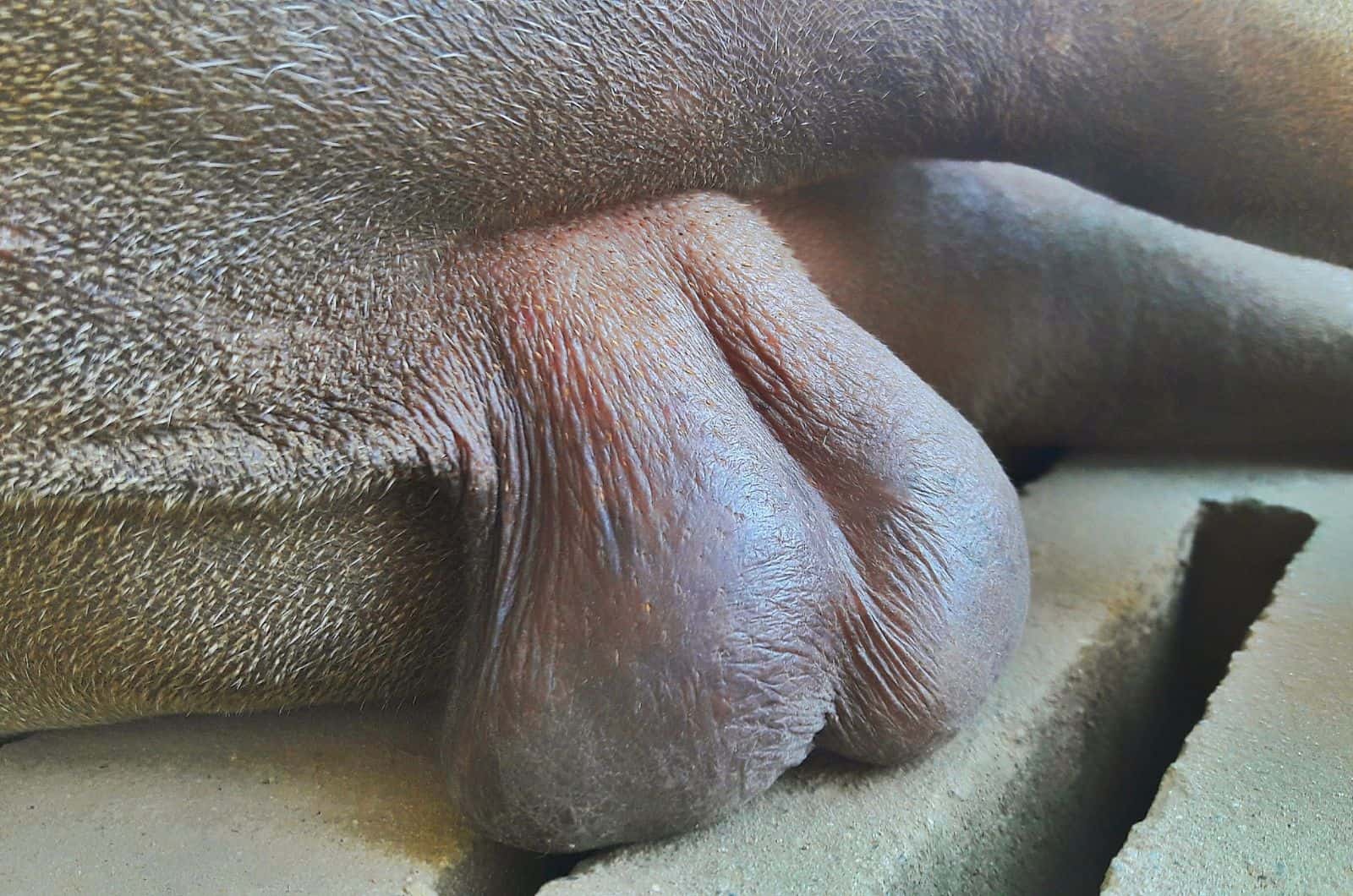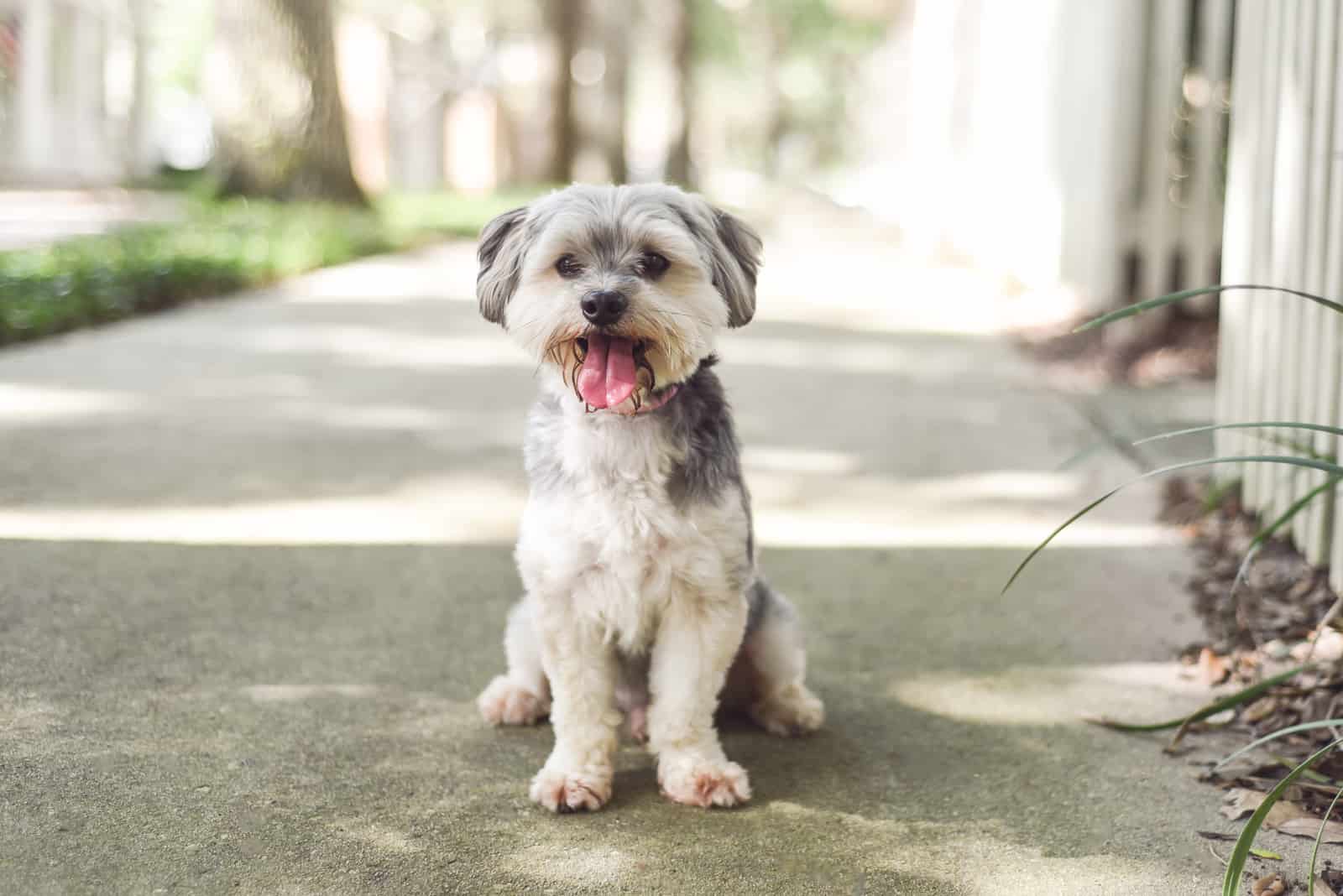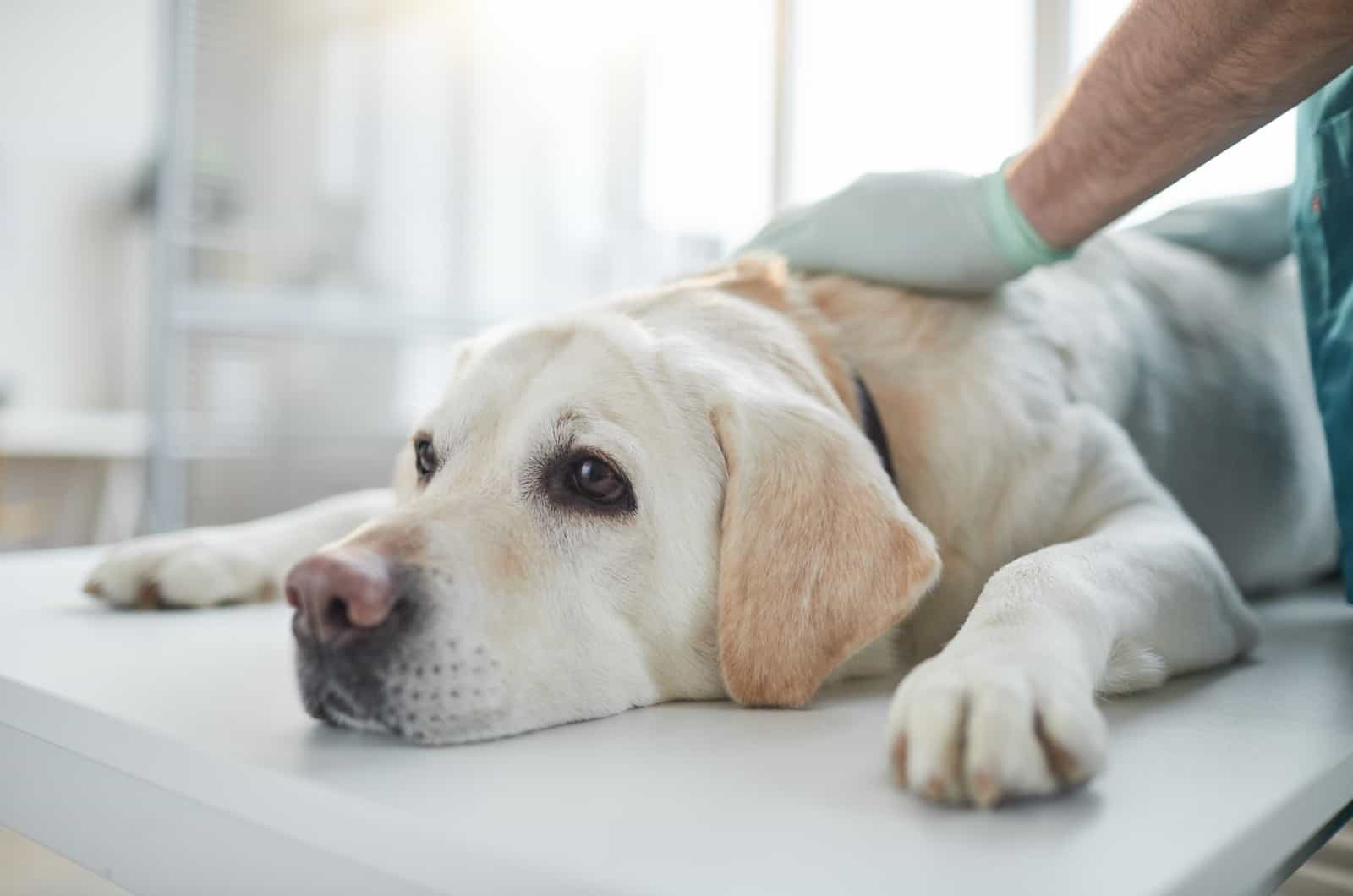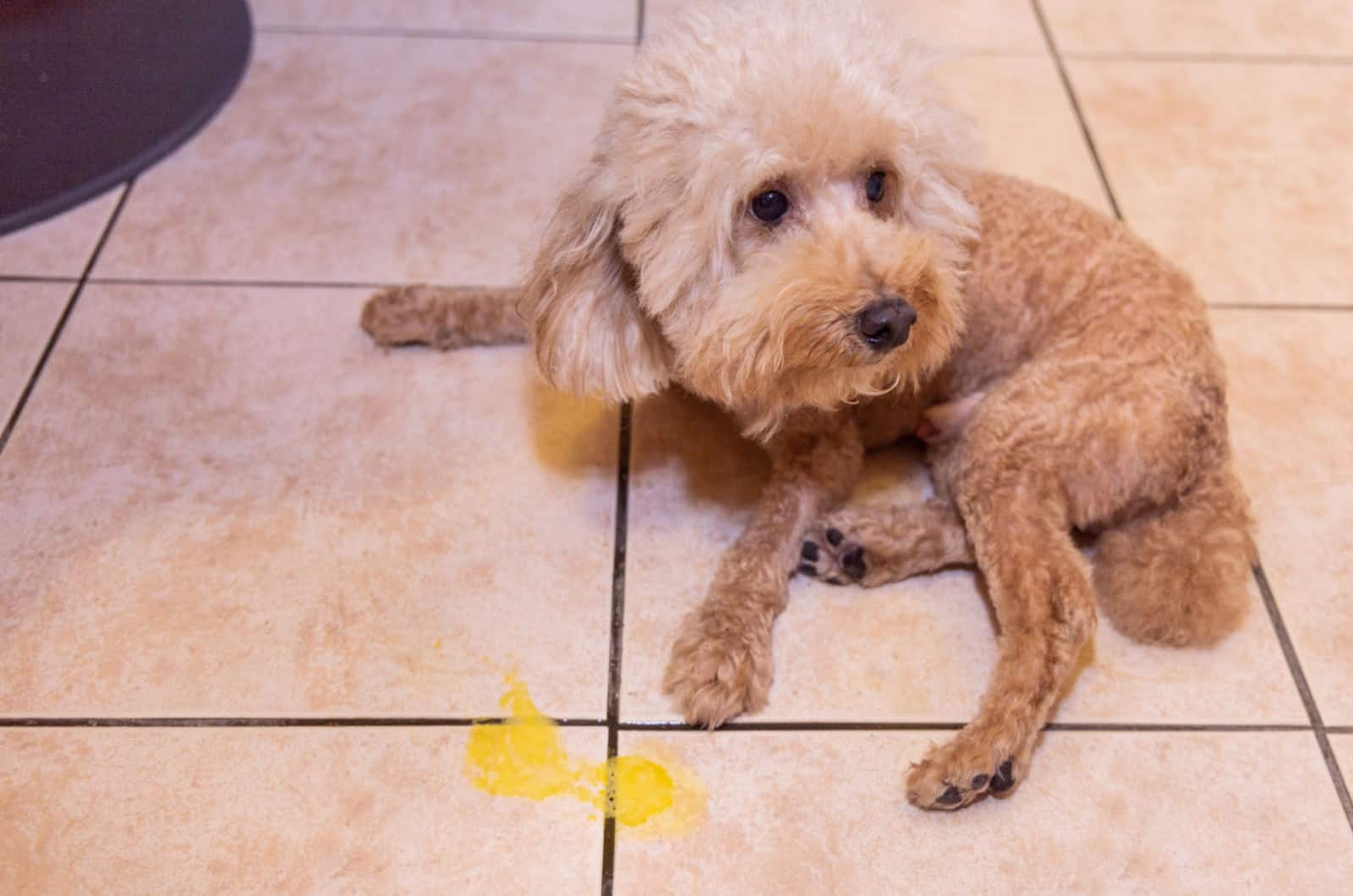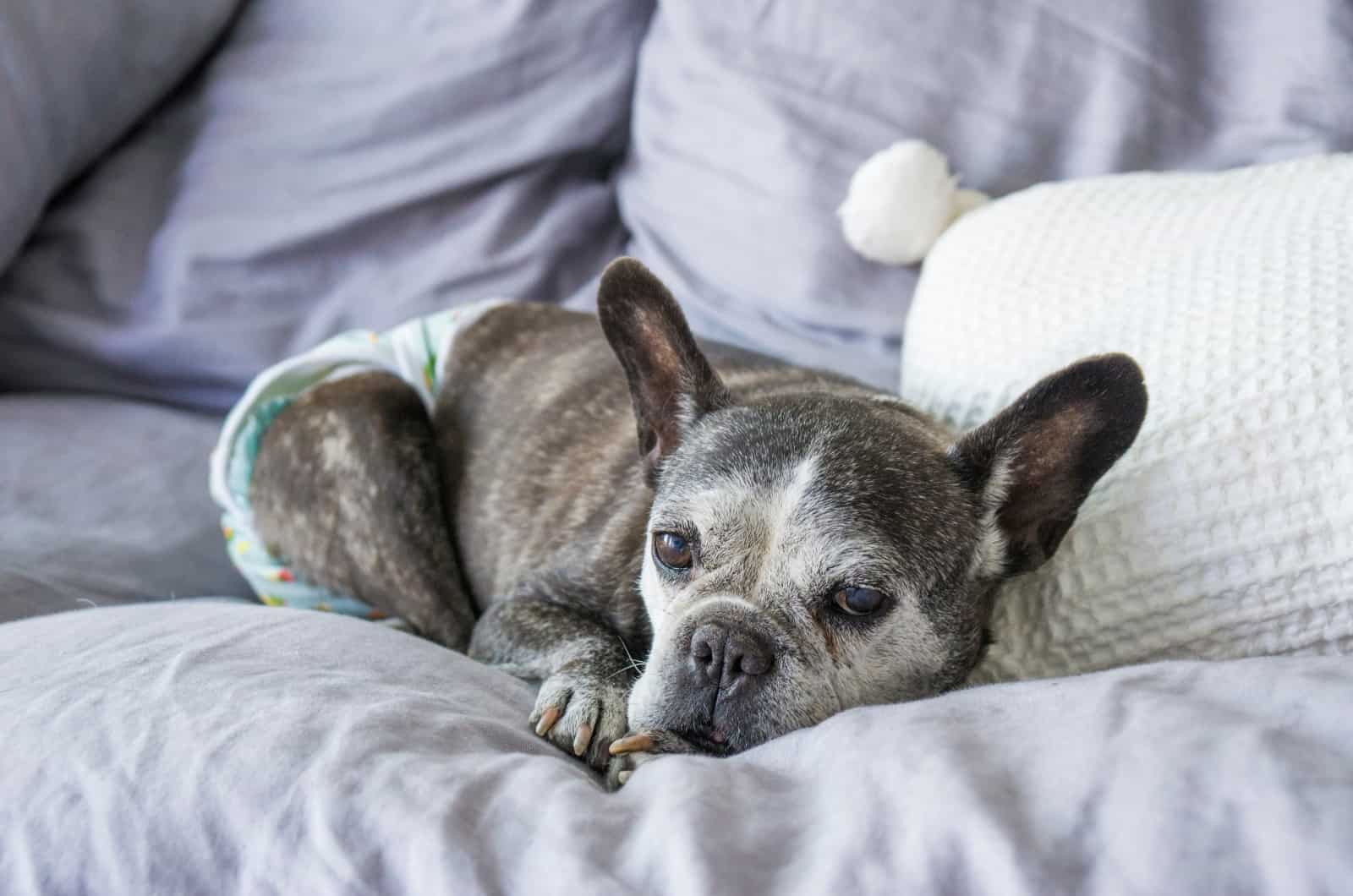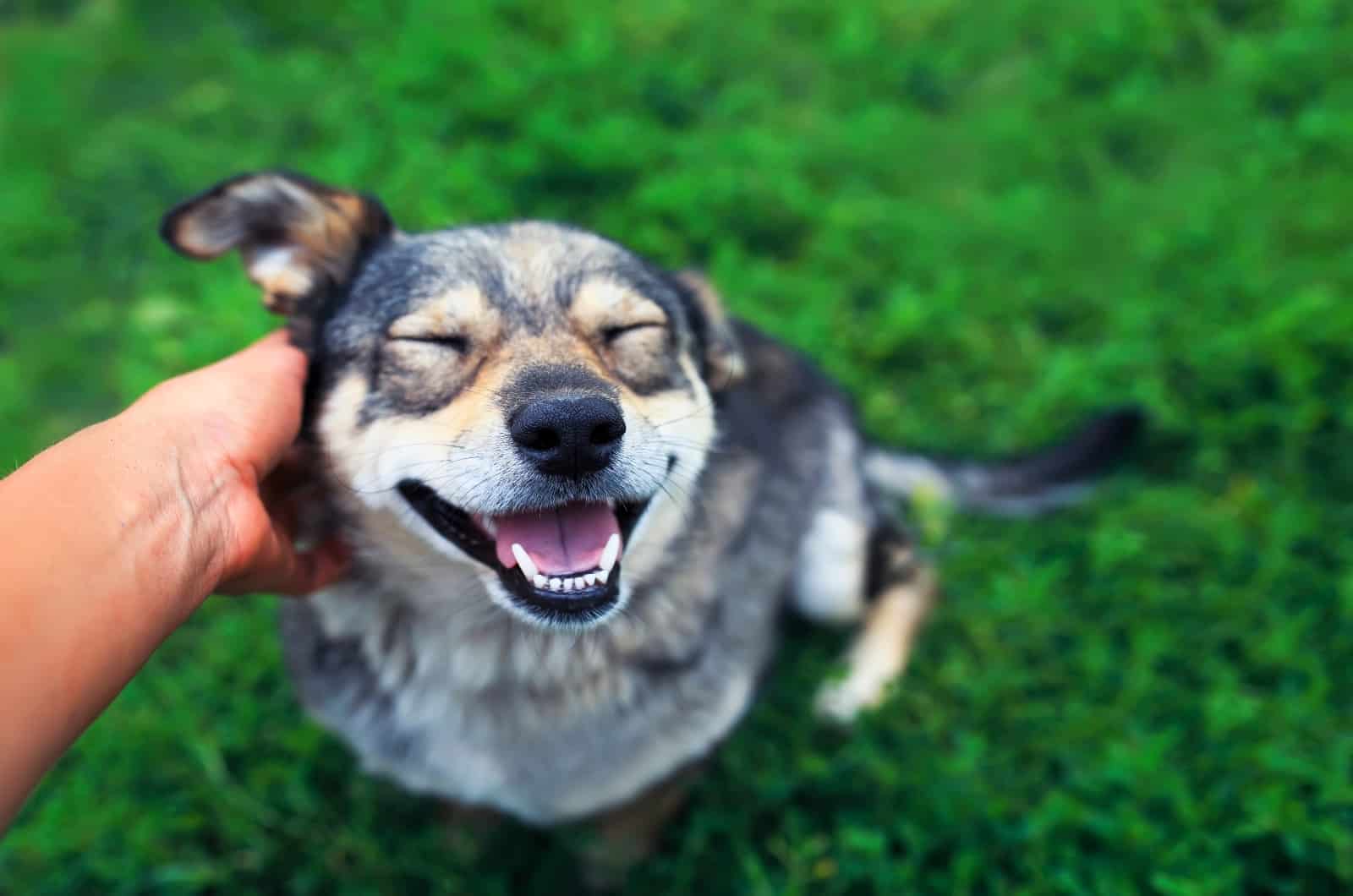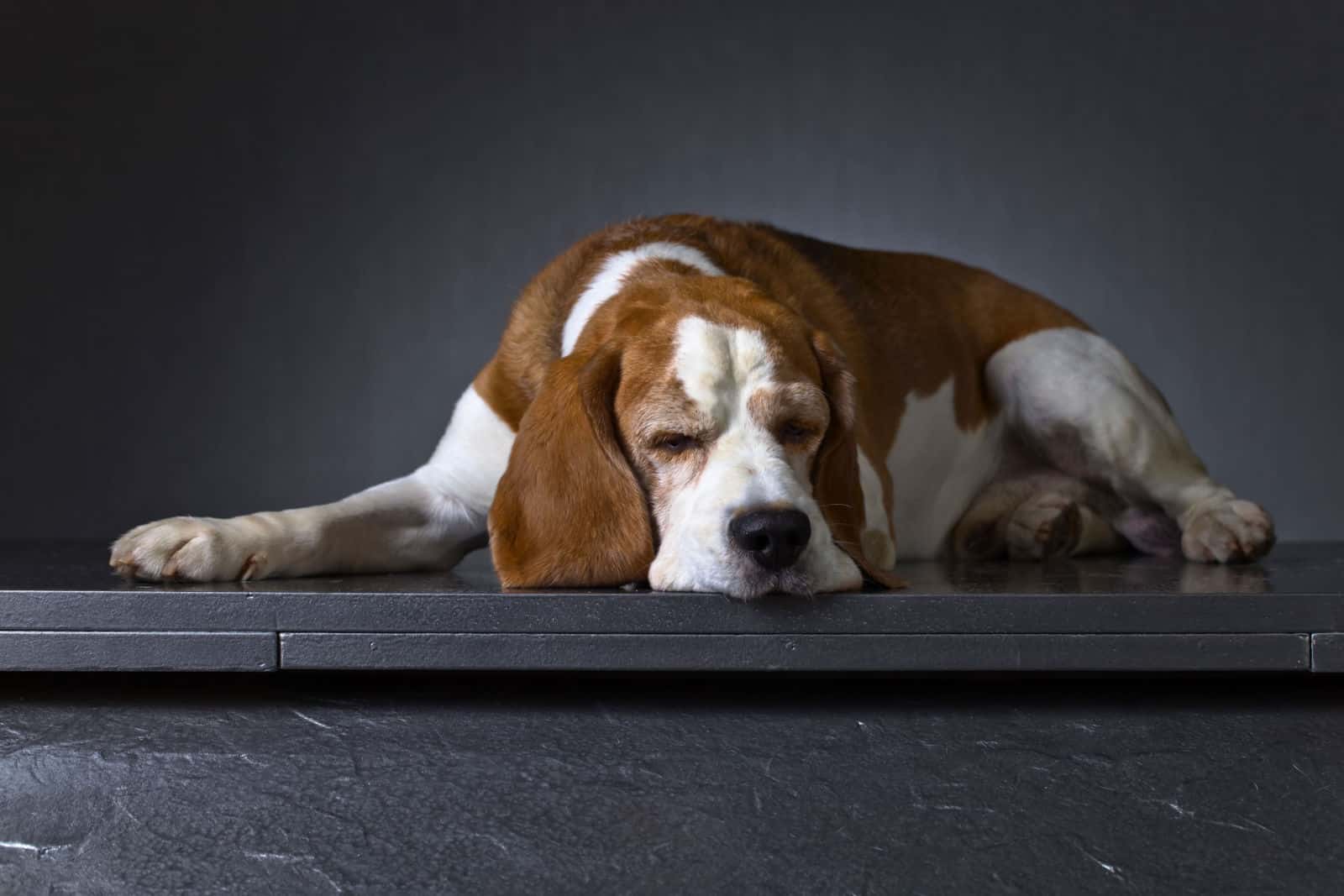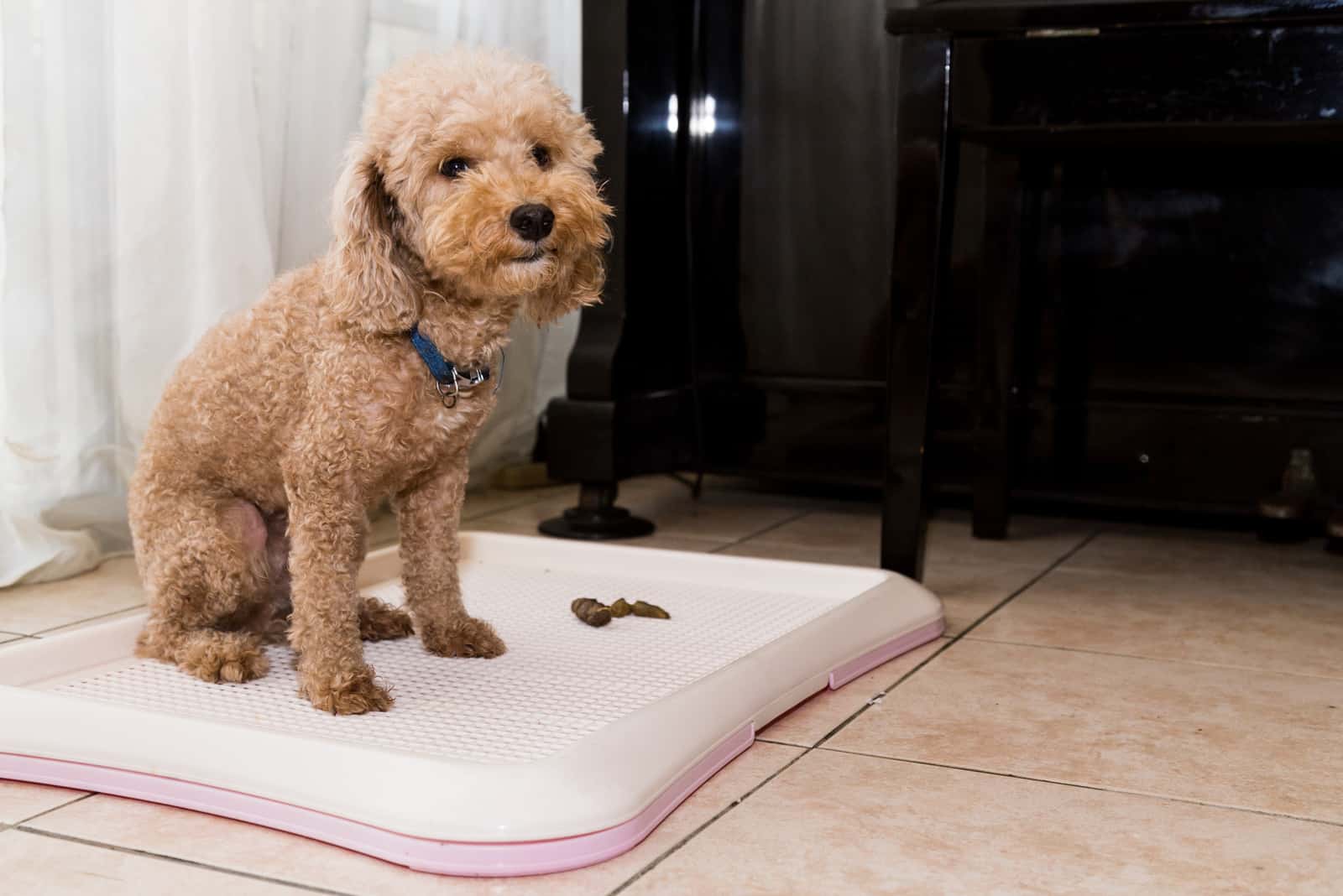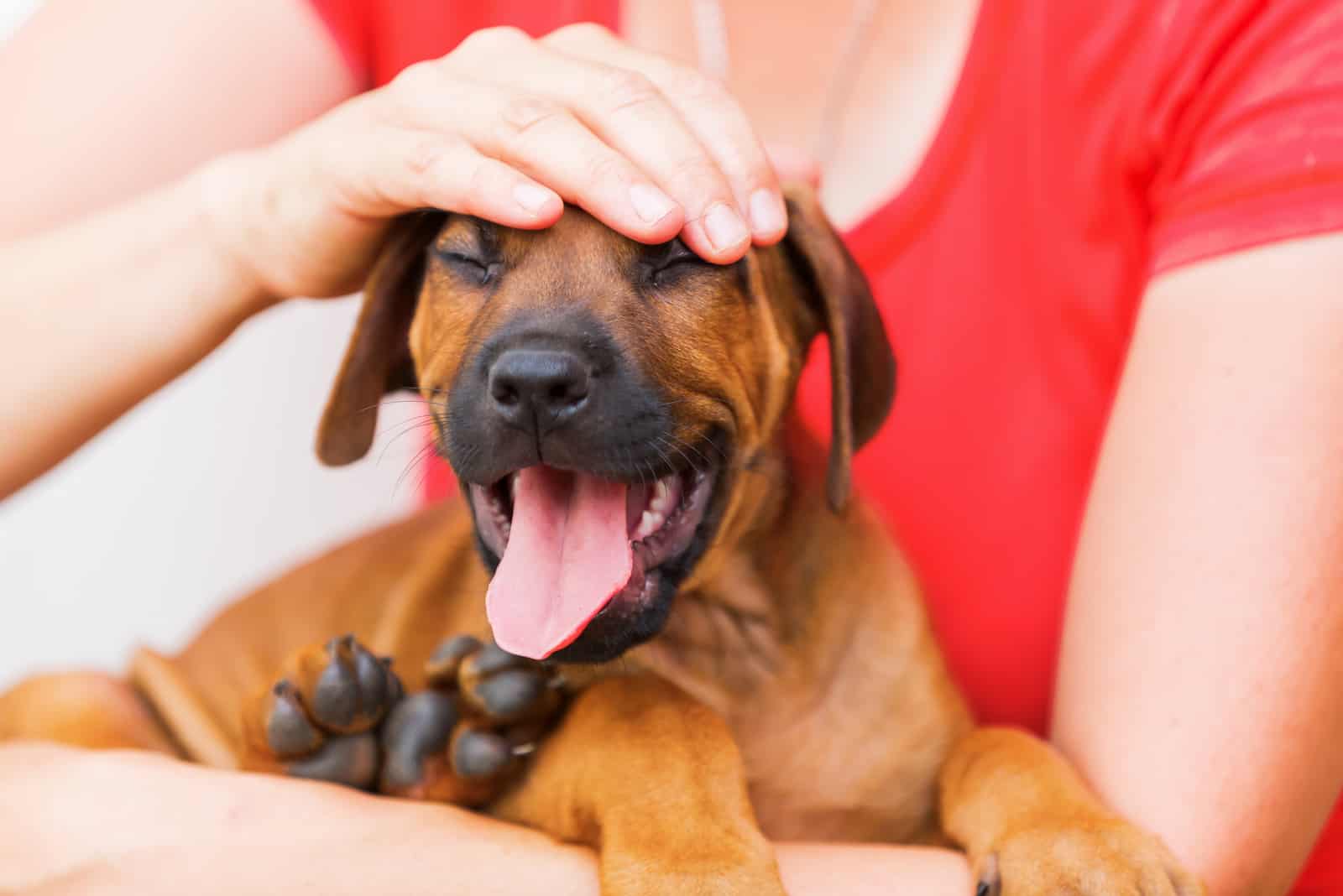Your dog coughs, sneezes, has a runny nose and eyes,, and seems like he’s going to lose his air?
We welcome your dog to the congested club!
Before you wonder “Why my dog sounds congested and how can I help him?”, I’d like to make some things clear:
Congestion is something that can mean severe health complications, but it can also mean nothing.
How is that so?
Canine congestion happens for lots of reasons. Sometimes your dog is just a senior dog and always feels like he’s got a stuffy nose. Sometimes it’s not a matter of the dog’s health, it’s a matter of anatomy. Brachycephalic dogs always sound so congested.
Still, sometimes the congestion may be a sign of certain medical conditions.
You won’t know until you don’t monitor your dog for a while or take him to the vet.
All dogs can experience difficulty breathing. Dog nasal congestion is quite common, but other respiratory troubles and breathing problems occur too!
What are those? Why does my dog sound so congested all the time?
Lastly, is there something I can do to help him breathe easily?
Stay with me and I’ll answer all your questions and prove there’s usually nothing to worry about your pup’s health. And, if there is something to worry about, I’ll show you how to approach the situation the right way and where to seek a treatment plan.
Ready? Let’s go!
Why My Dog Sounds Congested?

That heavy breathing isn’t just because your dog ran too long or the exercises for the day were too rough. Congestion can be a serious fault and affect a dog’s life quality significantly.
Yes, congestion is exactly what you think: a dog’s inability to breathe normally because his airways are blocked for some reason.
The respiratory system is a complex one with dogs, especially if it’s a breed with characteristic flat faces.
However, the good news is that the congestion may be temporary. Sometimes a bad sleeping position can cause it, or lack of humidity in the air. You shouldn’t immediately jump to conclusions and assume something’s terribly wrong with your dog.
I get it. It’s hard to listen to your dog having problems breathing and looking like he’s going to choke and lose its air. Fresh dog owners who experience this for the first time may get traumatized even more.
But stop, drop, and roll. Not every congestion is life-threatening.
First, remember which dog breed you have at home. If it’s a flat-faced one, then you can eliminate all the major respiratory conditions.
If you believe the congestion hasn’t occurred because your dog is a brachycephalic one or has an underbite, then you should look for other common symptoms. A runny nose, watery eyes, sneezing, and snoring can also be symptoms.
Monitor your dog and introduce your vet to the problem so you can find a solution together.
Breathe Deep: 10 Reasons Why Your Dog Sounds Congested

Believe it or not, there are so many reasons why your dog might sound congested. From simple ones like your dog having a difficult anatomy and being brachycephalic, to more severe ones like infections or foreign bodies getting stuck in your dog’s nasal passages.
The following top 10 reasons are the first ones you should think of when you notice your dog sounds congested.
1. Brachycephalic Breed
Simply put, brachycephalic dog breeds are super prone to breathing hard. These dogs have shortened facial bones. Unlike some pointy-nosed dogs, these pooches seem like they have their muzzles pushed back in.
The shortened bones also mean other soft tissues on the dog’s face will somehow be altered. This may cause trouble while breathing.
As you can assume, the most popular brachycephalic dogs are snub-faced pooches like Pugs, French Bulldogs, Cavalier King Charles Spaniels, Mastiffs, Shih Tzus, Boston Terriers, etc.
Unfortunately, these dogs may experience something called BOAS.
BOAS stands for Brachycephalic Obstructive Airway Syndrome. This is another reason you’re wondering why your dog sounds congested, BOAS is characterized by upper airway abnormalities. The particular abnormalities include issues like stenotic nares, elongated soft palates, extended nasopharyngeal turbinates, hypoplastic trachea, laryngeal collapse, etc.
If you suspect your dog has BOAS, you should take him to the vet. The vet will examine your dog, ask you about the clinical conditions, and maybe even run some x-rays. The biggest sign that the BOAS is present is your dog’s breed.
2. Old Age

Oh, don’t worry, the heavy breathing in the dog’s senior years isn’t normally a warning sign. It’s not like your dog will start breathing heavily and eventually stop breathing for good.
The link between congestion and senior years lies in weak cartilage. As dogs grow old, the cartilage in their noses will become weak and thus cause their breathing to be a lot louder. This is the same reason why some older dogs snore all the time.
Old age and congestion aren’t something that should worry you. Naturally, you don’t have to worry if everything else is okay with your pup. I recommend you take your old buddy to the vet if you notice any signs of congestion. It may be something, or it may be just old age. Better safe than sorry!
It’s not totally possible to prevent cartilage failure, but you can do your best and ensure your dog takes enough glucosamine throughout his whole life. This supplement builds the cartilage and may even prevent congested breathing and cartilage failure in the golden years.
3. Allergies
Believe it or not, allergies are quite common in dogs.
While most reactions occur because your dog ate something, there are reactions that happen because your dog inhaled a scent that he’s not okay with.
A lot of humans are allergic to common allergens like pollen or dust. It especially occurs in the spring and summer when flowers are in bloom and lots of different plants and herbs are growing. The general symptoms are runny and red eyes, congestion, and sneezing all the time.
Well, the same thing happens to dogs. Our canine buddies can also be allergic to the same things as humans. So, dogs can react to pollen, dust, and even mold. These allergies are also known as allergic rhinitis. What happens is that your dog’s nose gets inflamed, or the mucous membranes get damaged and thus develop an inflammation.
You can recognize allergies or allergic rhinitis watching out for the following symptoms: nasal discharge, sneezing, snoring, and using only the mouth to breathe.
The good news is that this condition is a common one. It strikes lots of dogs, no matter their bread. Another piece of great news is that it’s not that difficult to treat. Still, you’ll need your vet’s help.
Allergies should be treated with antibiotics, steroids, or antihistamines. A quick treatment will make your dog feel brand new again.
Peppermint oil can also help your dog breathe easier, but to prevent further infections I wouldn’t leave things untreated. The last thing your dog needs is to have his allergy develop into something more severe.
4. Respiratory Tract Infections

Respiratory infections are so annoying! Ask anyone that has to deal with them at least for a while.
Sadly, respiratory infections and inflammations are also quite common. From viral to bacterial, parasitic, or fungal infections. Dogs get them all. You can consider yourself lucky if your dog has never had issues with respiratory infections. I mean, we humans have them all the time, so imagine how frequent they are with dogs.
But, how to spot respiratory infections? No matter what’s causing it, the symptoms are pretty much the same. Nasal discharge will always be present. It’s usually green, yucky, and difficult to wipe off. Your dog will sound congested like crazy and will have to breathe through its mouth.
Nasal respiratory infections are pretty difficult to deal with but imagine infections of other respiratory organs like the lungs! Well, that’s a condition that needs a vet’s help asap.
The important thing is to detect what’s causing your dog’s respiratory infections. Sometimes a bacteria can be so persistent and will come back many times, every time after you supposedly cure it. Bacterial infections aren’t usually harmful, but I wouldn’t leave anything to the chance, and I’d get them treated, though.
Parasitic infections aren’t the most common ones, but they still occur. Personally, my dogs have never had them, but I know I’d be scared if they do. Lungworms, which are probably the most frequent parasitic infection in the respiratory system, are a pain to deal with.
5. Obesity
The reason why you’re worried about your dog sounding congested doesn’t always have to be an issue with the upper airways. Yes, problems with the upper airways are the most common ones, but the lungs can also be the cause of heavy breathing, especially with obese dogs.
Sadly, obesity strikes canines too and doesn’t pick which breed to affect, and which not. Every dog can become obese if the owner offers him too much food on a daily basis, especially if that food is packed with bad carbs only.
Dogs need a healthy diet and exercise. Otherwise, you’re risking a list of severe problems that come with obesity. Besides the mobility issues that are a staple with every obese condition, dogs suffer from heart and lung conditions too.
Basically, an obese dog will feel too much pressure on its heart and lungs, and thus those organs won’t be able to function as they should. Your dog will breathe heavily and feel like he’s choking. These conditions don’t last long because they often end with fatal outcomes.
Do you really want your pooch to pass the rainbow bridge because of some extra pounds?
Get up, get that leash and start exercising! Obesity can kill your dog, but also create so many problems with breathing prior to that. Your pup will only suffer and beg for a relieved breath,
6. Sleeping Positions

Animals can sleep in such weird positions!
Raise your hand if you’ve ever seen your doggy sleeping with his head sticking out of the doggy bed, or upside down. Yup, those are our doggies! They’re wacky, but we still love them.
No matter how much fun and laughter it brings to see a dog sleeping in an unusual position, you should stop it immediately. Sleeping in such odd positions can bring so many issues to your dog, from back problems to airway obstruction.
Believe it or not, dogs can get congested while sleeping weirdly. If this is a problem, then your dog will start breathing normally if you wake him up or make him change his position. Hearing those awful snorting sounds can be very traumatizing. But, usually, there’s nothing wrong with your dog here. Awkward positions will obstruct airways just temporarily, and your dog will be fine.
To prevent such things from happening, it would be best if you could invest in a great dog bed. There are a bunch of high-quality ones on the market. I always pick orthopedic ones with headrests, and I’ve never seen my dogs sleeping crazy on these beds. I guess they’re just too comfortable to wiggle around and find sleeping positions outside the textbook.
So, the next time you see your dog’s head hanging down from the sofa, move him and watch closely if the breathing has normalized.
7. Tumors
Unfortunately, dogs can develop tumors too.
A ray of sunshine is that those tumors don’t have to be bad. They can be difficult to handle, but they aren’t necessarily malignant.
In most cases, adult dogs will develop polyps. Those are harmless, benign tumors that can’t end your dog’s life. However, living with them can be irritating, and will cause your dog to sound congested all the time. What’s good about polyps is that they can be removed if they affect the dog’s life in a great way.
If you own a normal-snouted dog, in other words, if you don’t own a brachycephalic pooch, and you relieve him from his polyps, chances are he’ll start breathing normally again.
Polyps happen over time and if your vet notices them, it’s good to run tests just to be sure they’re not bad tumors.
Speaking of the bad…
Canine cancer is, unfortunately, pretty frequent. And, yes, it does affect the dog’s respiratory system too. Malignant tumors usually appear as a growing mass in the dog’s throat, or inside its nose. The mass prevents the pup from breathing normally.
If the mass is in the throat, and it starts bothering your dog, you’ll notice symptoms like a lack of appetite. Everything your dog swallows causes him pain. That’s a clear sign you should ask your vet to run some scans.
In most cases, such tumors are operable, but the recovery, with therapy, is super hard.
8. A Foregin Body Stuck
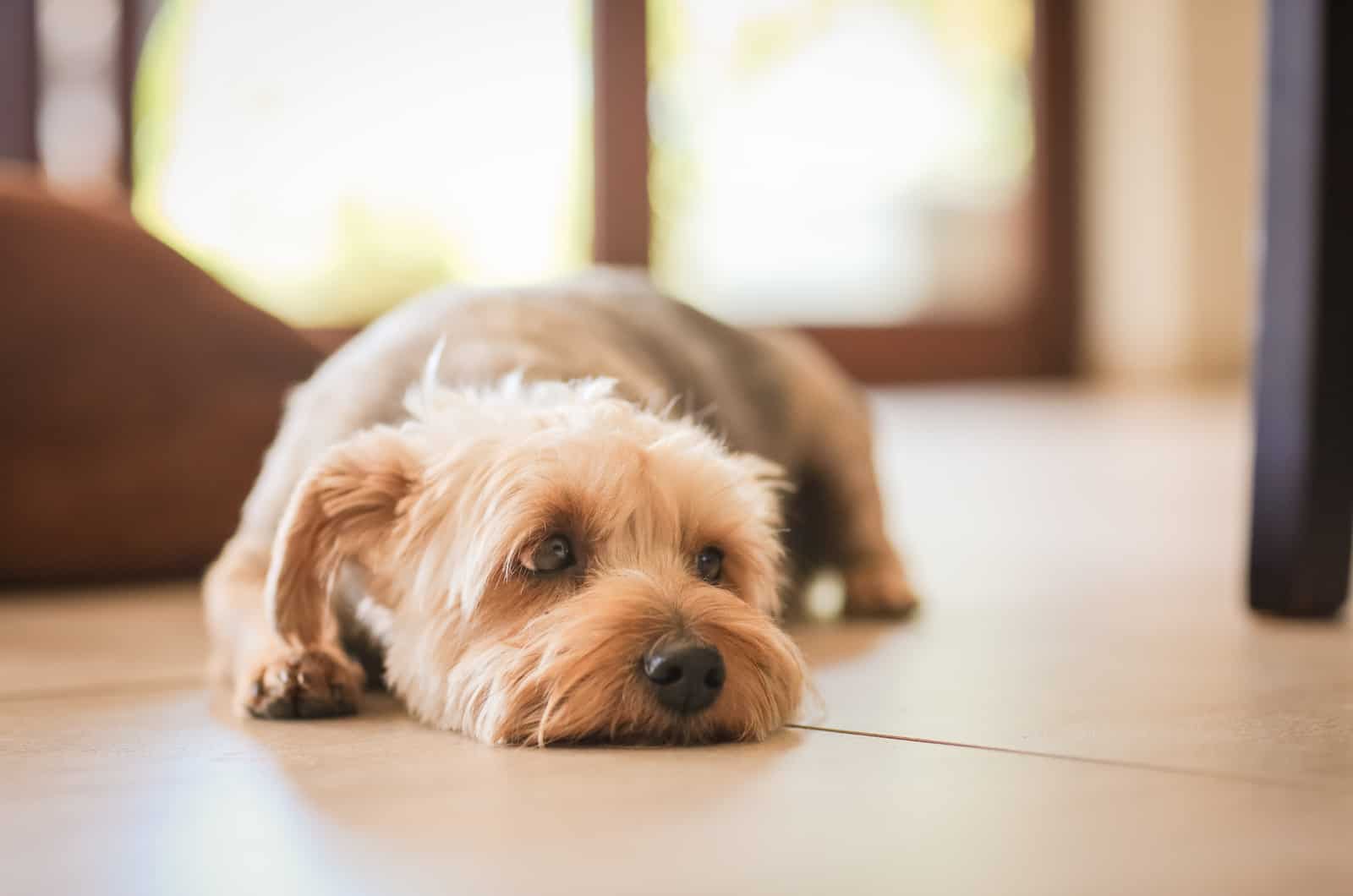
Kids usually have items stuck in their noses. Ask any ER staff and they could tell you stories about small batteries, pearls, buttons, peas, seeds, and even coins found in those little noses.
But dogs don’t have thumbs, so they can’t stick a bunch of peas into their noses, right?
Technically, that’s right, but dogs do have nostrils and they do sniff things. Our four-legged buddies can easily inhale a foreign body unintentionally. Dogs usually inhale food bits or some seeds found in the grass. It’s something that can’t be prevented because you can’t know your dog’s next move.
Still, it’s also something that doesn’t happen to every dog.
Dogs tend to chew on things that aren’t meant to be chewed on, hence why some foreign bodies are swallowed down. A clear sign something’s in your dog’s throat and not passing down is when your dog is gagging and not throwing up.
You can spot something stuck in your dog’s nose if you watch out for this obvious sign. You see, when a dog’s nose is congested because of an infection, both nostrils ooze with gunk. But, when a dog gets some foreign object stuck in his nose, only the affected nostril will become runny. This is the body’s way of dealing with that item, trying to push it out.
Dogs normally sneeze out such items, but sometimes they can go too deep and will require a vet’s assistance. The important thing is to react immediately and take your dog to the vet before the swelling starts and your dog begins to breathe insanely hard.
The vet should run x-rays or put a tiny camera into your dog’s airways to see what and where it is stranded.
The good news for you is that this condition that causes your dog to sound congested can be spotted right away, simply because the congestion happens abruptly and the symptoms progress fast.
9. Laryngeal Paralysis
Laryngeal Paralysis is one of the severe cases that cause dog congestion. In most cases, senior furry friends are affected, and seeing it with younger dogs is pretty uncommon.
The paralysis doesn’t allow the dog to take deep breaths or breathe normally. That’s why dogs affected by this condition breathe fast and seem like they can’t get enough air.
As you can imagine, Laryngeal Paralysis is quite difficult to treat. Not only does it cause physical dog health problems, but it also causes lots of stress and anxiety.
Anxiety combined with respiratory distress can only make things worse. Your dog will always feel like he’s suffocating. The condition can even have fatal outcomes if not treated as soon as possible.
10. Sedation

Your canine friend was operated on for some reason and now he’s having problems breathing? That’s completely normal.
If you’re one of those people who want to get their dogs spayed or neutered, chances are you’ll experience this type of canine congestion. The pain after neutering, as well as spaying, doesn’t last for long. And, neither does the congestion.
Dogs that are sedated and still recovering from the anesthesia have ALL of their muscles relaxed like never before. This includes airway muscles, making it harder for dogs to breathe.
Luckily, this is not a severe condition. The congested sounds will only last for a day and your pup will be like new tomorrow.
Congestion caused by sedation shouldn’t worry you. The snoring and the snorting you hear are simply muscles vibrating.
Let your dog recover from the procedure and make sure he doesn’t get nauseous after waking from the anesthesia. The heavy breathing part shouldn’t worry you at all.
My Dog Sounds Congested, What Can I Do To Help Him?

You can be of great help to your dog when he’s feeling congested. Of course, taking the dog to the vet is definitely the safest option, but you shouldn’t bother your vet with issues like congestion while sleeping in a bad position. Always try to fix things at home first, then take your dog to the veterinary practice.
There are numerous ways in which you could help your dog breathe easier. However, they all depend on the reason why your dog is congested in the first place.
Let’s start with the basic ones. If you ever hear your dog sounding congested, you should turn on all those gadgets you have at home for more pleasant air. Purifiers and humidifiers can be pricey, but they help a lot.
Get your dog to move. Staying idle will only help with nasal discharge build-up, and thus cause congested sounds. An active dog that doesn’t snooze all day is less likely to get a stuffy airway. The activity will help a lot with the congestion and keep your dog away from obesity, which is another reason why your dog may breathe so heavily.
Of course, some conditions can only be solved with the vet’s assistance. Allergies, nasal infections, or God forbid tumors should only be treated by a professional. Don’t hand out antihistamines like treats. Consult your vet first.
Lastly, if you see any secretion coming out of your dog’s nose, grab a soft cloth and wipe it away. Dogs can’t wipe their own noses, but humans can, and wiping helps more than you think.
Home Remedies For Dog Congestion

I love using home remedies whenever they’re possible. I’m not a huge fan of all of them, but some are so good, I swear by them. I find things from around the house to be quite helpful whenever one of my dogs has a minor problem. Usually, I use home remedies like olive oil or some of my homemade balms to treat some skin conditions, for example. But, when my dog sounds congested, remedies like the ones I mentioned don’t really help.
However, I do have some methods I find useful.
I like to foster dogs from time to time. It’s not unusual for my little family to host a brachycephalic dog or a dog with some sort of condition. Pugs were really common with us! I’ve learned from my previous experiences and now I know what to do if one of my dogs sounds congested.
One of the first things I do is turn on the humidifier and the air purifier. Sadly, we can’t live without these gadgets these days, especially if you’re living in a city. A well-ventilated room will ease breathing so much, you wouldn’t believe it!
This may sound ridiculous, but I let my dogs in while I took a hot shower. The steam opens up their airways like so! Try it but be careful of the hot water.
Antihistamines are something I don’t hand out unless it’s really necessary. Sure, Benadryl is safe for dogs, but I’d rather offer a sharp-scented food they’re safe to eat, like basil leaves. Such ingredients tend to activate the dog’s sense of smell and thus open his airways. This works well with chicken or any other cooked meat!
Of course, one of the most helpful home remedies is to clean any discharge that’s coming out of your dog’s nose. Use a warm cloth and wipe off everything that comes out of your dog’s nose. They can’t blow their little noses for themselves, so we have to do it for them.
Moving on..
Believe it or not, dogs find warm chicken soups as helpful as humans do. Every time we’re sick, a bowl of chicken soup usually helps. It’s delicious for our dogs, and it helps clear out the sinuses. Of course, the chicken soup method only works if severe health conditions aren’t involved.
Lastly, don’t let a congested dog stay still for too long. Laying still only benefits the production of mucus and only makes breathing harder. Move a little! Let your dog follow you around the house or go take a walk together.
What To Do If My Dog Sounds Congested While Taking A Nap

Dogs with some sort of lung condition can have problems breathing while lying down. This usually occurs because the fluid builds up while the dog is laying, and thus doesn’t allow easy breathing. Hence the importance of staying active once again.
But we can’t expect your dogs to sleep standing up. A dog has to lie down and rest.
Congestion while sleeping can only be treated if you find the potential cause behind it.
Start with the basic reasons before you opt for a vet visit. Move your dog around and try to make him sleep in a different position. See if seasonal allergies are currently happening. Maybe he’s having an allergic reaction to something, and that’s why he sounds all congested.
A clear sign it’s only a matter of the sleeping position, is the absence of congestion when your dog is awake.
Once again, go through the most common root causes of canine congestion and eliminate reasons as you go.
Canine Snoring Problem
Humans usually snore when they’re in an odd sleeping position.
Well, dogs snore too, but the sleeping position isn’t the only reason why.
Brachycephalic dogs snore all the time, even while they’re awake. Technically, it’s not snoring because they’re not sleeping, but it is a snorting sound.
Your pup’s snoring problems can be caused by the same reasons as any congestion. I won’t repeat myself, but it’s good to know that the reasons why your dog snores aren’t so severe.
Always keep that list of the 10 most common reasons for congestion in your mind.
What Is Respiratory Distress?

Respiratory distress is a condition when your dog lacks oxygen.
Think of this as one step further than the typical dog congestion. If you’re a new dog owner, then you should be familiar with the basic symptom of respiratory distress. If not treated in time, respiratory distress can cause so many issues for your dog, and even lead to a fatal outcome.
The most obvious signs your dog is in respiratory distress are as follows:
- pacing around
- legs in a spread position
- extended neck
- noisy breathing
- grayish or blue gums
If you can, monitor how many breaths your dog takes in a minute. If it’s more than 30 breaths, I’d rush him to the vet’s. Puppies shouldn’t normally breathe fast, so keep an eye on their respiratory system.
What’s The Verdict?

Now that you know the reasons behind this issue, you won’t have to wonder again Why my dog sounds congested.
Being congested isn’t usually something that should make you worried. Dogs get their airways blocked pretty frequently, especially if they’re prone to allergies. You shouldn’t panic or make a big deal just because your canine buddy is having problems sleeping upside down. I mean, who does that? I’d like to see you sleep in the same weird position and breathe normally.
You get the point, don’t you?
I hope you’ve learned that anytime you hear your dog sounding congested, you should eliminate the most obvious reasons why. Sometimes people love their pets so much that they forget they’re classified as flat-faced pooches. If you don’t like someone panting next to you while doing zero physical activity, then don’t get a brachycephalic dog.
You’ll notice if the air in the house is too dry too, so run those gadgets asap.
Basically, do everything you can to make your dog comfortable. If problems still occur, it’s time to visit the vet. Issues with breathing that happen all of a sudden, should immediately be treated by the vet before they turn into something more severe. Infections aren’t harmless, and tumors can’t go away on their own. This is where general medicine helps and it’s up to you to embrace it and allow the treatment of your dog.
We’d do anything for our little four-legged buddies, isn’t that right?

